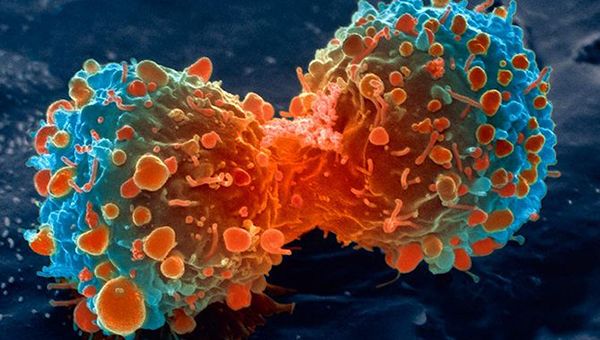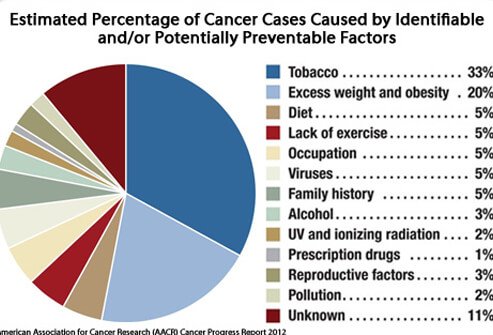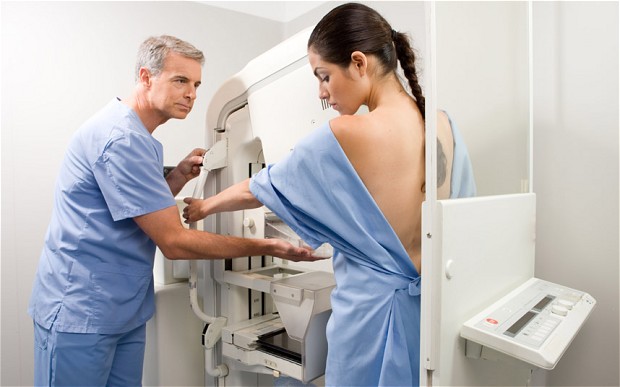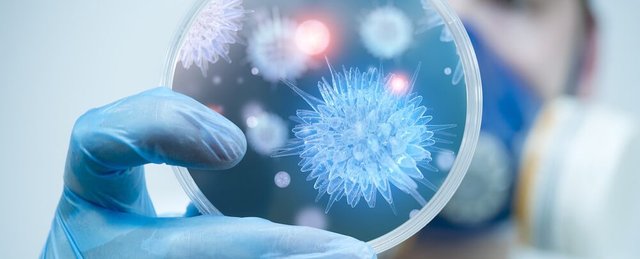CAN WE DO ANYTHING TO PREVENT CANCER?


INTRODUCTION

Cancer is one of the most devastating diseases that humanity has ever had to face. Even though our medical advances have allowed us to give these patients better chances of a long term survival, the statistics are still troublesome. Anywhere between 15 to 20 million invasive cancers are diagnosed every year and about 10 million people worldwide will die from it. Cancer is the price that a lot of us will have to pay for our increasingly longer lives. Cancers of the lungs, liver, stomach, colorectal and breast have the highest rate of incidence. In the developed world, cancer and ischemic heart disease are ‘fighting’ for the place of the number one killer.

Source
We all hear about how smoking and alcohol cause cancer, but what is the actual pathophysiology behind it? Normally in the human body there is a finely tuned balance between cell proliferation and cell death. New cells are created through cell division to replace the ones which undergo the programmed cell death called apoptosis. Various genes regulate these processes to ensure their smooth operation. Sometimes though, during cell division, ‘mistakes’ occur which cause damage to the DNA. To fix this, our body has special DNA repair mechanisms which protect us by repairing the damaged cells or making them undergo cell death. But in some cases, due to endogenous or exogenous factors, our defence mechanisms fail. Deficient DNA and mutated cells build up, they multiply and finally progress to the various forms of cancer. Some of these cancer causing factors are for now beyond our control. But research after research shows that we can actually take some steps that can reduce our chances of having to go through this awful disease.

SCREENING AND PREVENTION

The early detection of cancer is probably our biggest weapon when it comes to catching this disease early, preventing its progression and in some cases to even cure it. Screening is usually done through blood tests and medical imaging techniques. If you are a woman, remember that more than 30% of cancers in females are either in the breasts or the uterus. During the last decade proper screening against these two, has lead to a 60% decrease in mortality for cervical cancer and 30% for breast cancer. Self-examine your breasts once every two months, watching out for new lumps and abnormal masses. A mammogram once every 3 years is recommended for younger women and once every year for women older than 50. Women over the age of 20 should have a Pap-test approximately once every 3 years.

Source
For prostatic cancer it is advised that men over the age of 50 should have a PSA and a digital rectal examination once every year. Colorectal cancer, the third biggest cancer killer, can actually be prevented at a high percentage if caught early. Colonoscopies are recommended once every five years for men and women over the age of 50.

LIFESTYLE

Out of all cancers, only 5-10% are actually caused entirely by genetic factors. That means that 90-95% of all cancers are caused by environmental factors which can be controlled to some extent. Inflammation is in most cases hidden behind these cancers. Smoking and excessive alcohol can cause huge damage in the lungs and upper gastrointestinal tract. The most worrying fact that more and more researches start to bring to the surface is that obesity is now believed to be behind 30-35% of all cancers. Inflammation, metabolic imbalances and direct cell damage are all obesity caused factors that can lead to uncontrolled growth of carcinogenic cells. Regular exercise of moderate intensity has been proven to reduce body inflammation and therefore helping the body repair itself. Fruits and vegetables have been shown to significantly reduce the incidence of colorectal cancer and on the other hand, the excess consumption of sugar is slowly coming to the surface as an important culprit behind some cancers.

CONCLUSION

Many doctors and scientists believe that our fight against cancer will be the biggest medical battle we will have to give. During the recent years there has been an enormous motivation in the medical community, encouraging everyone to come together and put an end to this devastating disease that has been killing us for thousands of years. Amazing technologies and medical procedures are being developed at the moment. Targeted immunotherapy is expected to aid our immune systems to destroy all cancerous cells. Genetic and epigenetic technologies are being developed that will be able to ‘switch off’ malignant cells and cause them to undergo apoptosis and die. New tumour markers and 3-D imaging technologies are already being used for the early detection of cancers while nanotechnology and robotics are believed to play a major role in the future of cancer treatment. But until these technologies become part of everyday medical procedures, it is up to us to do what we can to keep our bodies safe.

Source

For many more articles like this, follow me @nulliusinverba

Very informative article, thanks for sharing! Yes! It is very important that we continue to defeat cancer, and hopefully those scientists in this field can soon find a cure for cancer. Of course, we should not only hope for the scientists to work on this, we should try to keep ourselves healthy!! Cheers everyone :)
Very well said!!! Thanks for reading and for your great comment
according to an article I read a while back
2/3 of cancers are gonna happen anyway...it's genetic.
nothing you can do about it with present tech.
lifestyle is irrelevant.
Hey @everittdmickey! Would you happen to have a link to that article still around? I'd love to read it. All cancers of course come down to gene mutations and in some cases pure ''chance''. Even though there are cancers that are hugely affected by inherited genes and even some that are caused entirely by them, exogenous factors are still the major influence when it comes to cancer. You are right that on a gene level, the hands of the medical community are pretty tied at the moment.
sorry...i don't have it.
I scan/read hundreds of article a week.
it's been a while
one more thang.
I read somewhere else (several places)
that we get hundreds of cancers (regularly)
but our immune system kills them (mostly)
Our immune system can sometimes recognise cancer cells and kill them as long as they don't overgrow in numbers. Our DNA replication enzymes actually make thousands of mistakes per day but we have correcting mechanisms. One of these is what we call Tumour Suppressor Genes. They detect faulty and potentially cancerous DNA and they prevent the cells having that DNA from multiplying. But sometimes the mutations caused by damaged DNA will deactivate the Tumour Suppressor Genes and allow for the uncontrolled growth of cancerous cells.
I'll look more into it. Genetics is an area that I'm really interested in. Thanks for your comment!
This post received a 15% upvote from @randowhale thanks to @nulliusinverba! For more information, click here!
To be great in life you have to follow the best, that's why I follow you, follow me and we help each other
I recently stumbled on this article that claims that most cancers are just just bad luck. This is why I believe medicine is more of an art rather than science. :)
https://www.scientificamerican.com/article/most-cancer-cases-arise-from-bad-luck/
It makes sense that the higher the rate of cell division, the higher the chances of mistakes to arise whether they are just ''bad luck'' mistakes or affected by extrinsic factors. Mutations are random but the underlying trigger may still be environmental. Of course, it is also true that even if you live in the perfect environment and are perfectly healthy, DNA mistakes will still happen inside your body and you may still get cancer. It's just a game of chances. You smoke, then your chances of a random cancer causing mutation increase. You eat healthy, exercise etc then those chances decrease, but they will always be there.
dice game really
I know foods like red and processed meat have a huge effect on our bodies and can lead to us getting cancer. I believe our scientific discoveries are soon going to allow us to be rid of this disease. Then I can eat all the red meat I please.
Yes, there is research out there which states that red meat has been linked to an increased incidence of cancer. But we have to make it clear that it is the over consumption of red meat that causes this. Humans were designed to consume meat as an energy source. What we were not designed to do, was to eat it every single day in huge amounts.
evidence has shown that mammograms can be CAUSAL in cancer. chances are that if you have 9 mammograms you are going to develop breast cancer - at least according to the medical professionals i trust.
the best way to prevent cancer is to have good overall health through nutrition, breathing, posture and exercise - plus a strong immune system, since the immune system is tasked with clearing out cancerous and pre-cancerous cells.
most of the steps necessary to activate that level of health are not being taken by most people in allegedly 'civilised' countries - sadly.
I would really like to see some medical articles about how mammograms can cause cancer. Of course, in theory, the small dose of radiation is carcinogenic....but the benefits always outweigh the risks. Other than that, I agree with everything else you wrote.
it is possible that my memory of the issue is warped a bit because when i went to find some studies i first found a leaflet from a danish research center that makes clear that the problems with mammograms are not so much in that they cause cancer, but that they result in a statistically significant amount of mis-diagnosis. mis-diagnosis results in healthy women having breasts removed and chemotherapy un-necessarily..
Thus mammograms do increase the risk of death and it is claimed actually statistically do much more harm than good:
http://nordic.cochrane.org/sites/nordic.cochrane.org/files/public/uploads/images/mammography/mammography-leaflet.pdf
One of the most interesting things I've discovered not too long ago is the link between aging and the prevalence of cancer.
Sure, there are instances where younger people develop it, but generally the instances of cancer increase along with age.
It is one of the reasons I have become a lot more involved in learning about biological rejuvenation and anti-aging therapies. A topic I will hopefully be (attempting) to cover here soon.
Oxidative damage has been known for a long time to cause both ageing and cancer so you are right. Alzheimer's Disease is also highly linked to ageing. It's prevalence is expected to increase substantially over the next few years
Informative.
Thanks for reading @dean18!
I thought you might be interested in this post .
The CDC fact sheet is particularly interesting and the video is very informative.
https://steemit.com/vaccines/@marymg2014/do-you-or-does-anyone-you-know-have-cancer
Thanks for sharing @marymg2014. I'll take a look!
Here is a TED talk that you also might want to look at.
It goes along with my philosophy after practicing medicine for over 20 years.
Would you happen to have a youtube link of the video? The one you gave me doesn't work!
Sorry about that. Try this one:
Thanks!
I don't know how exactly breast and prostate cancer in Canada are treated but when I compare it to how we treat them here in Europe, he appears to be making some over-generalisations, especially with prostate cancer. In the two countries that I have practised medicine so far, a prostatectomy is a rare surgery. Most men with prostate cancer die of other causes before their cancer kills them. Of course the case for breast cancer is slightly different since there is radiation involved. Even though there are definitely false positives, the rate of women dying from breast cancer has decreased substantially and that is because of increased awareness and screening. Patients should always be made aware of all the side effects of any medical procedure they go through and it should be up to them to decide whether to have it or not.
Living in the U.S. I can tell you it is all about the money. Just take a look at the numbers of vaccines given in comparison to the rest of the world. And this is 2009 data. Government sites try to dress it up but you can't make a silk purse out of a sows ear. When I practiced it was all about "upselling" how much money can be made on the backs of citizens. DISREGARD SIDE EFFECTS!!!
https://steemit.com/vaccines/@marymg2014/if-you-think-the-fight-against-forced-vaccinations-is-just-about-children-think-again-adults-they-are-targeting-you-too
https://steemit.com/drugs/@marymg2014/fluoride-the-damaging-neurotoxin-that-is-deliberately-put-in-drinking-water